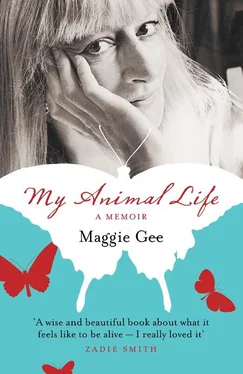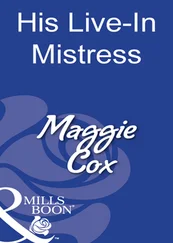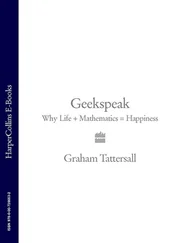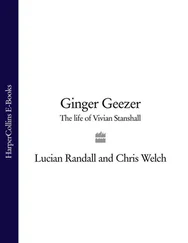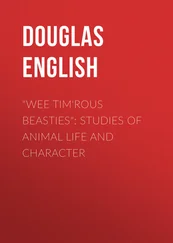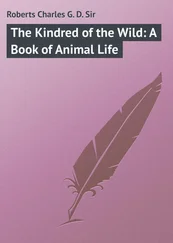Swot that I was, and favoured, I chose TS Eliot’s Collected Poems for my English Prize in 4L, and then moved reluctantly, long after beautiful Jane, into the twentieth century, haunted and enchanted by Eliot’s melancholy ironies and half-lit city streets. I have it still, a hardback, blue, with ‘Margaret Gee’ written inside in my still coltish italic, a little stiff and self-conscious, proud, the signature of a self in the process of creation, trying to become a person, an adult writer, by taking possession of the poet. The print on the spine, ‘TS Eliot’, is still, forty-five years later, faintly silver, numinous.
And Jane — beautiful, gifted Jane — Jane of the haiku, swinging her violin — she died, in her twenties, of cancer.
When I compute the luck in my life, I do not forget her.
running
My first coherent memory is of brightness and movement, running on a wide flat beach at Shell Bay. I am singular, and dazzled. I am not quite three. An expanse of white light, my parents behind my brother and me, the sea a low brilliant line, far away. Something catches my eye: full-stop. I crouch to pick up a small oblong shell, even whiter than the sand, chalk-white, crisply detailed, covered with regular indentations, which to me are identical to those on my new summer shoes. I name it with absolute certainty: ‘Look, I’ve found a Tennis White.’ Everyone except my brother is very pleased with me, though I have no idea what I have done, no idea it was a metaphor. I have better things to do. I run on.
Animal luck — for ninety-five per cent of us at least — is movement. Unlike plants, animals wriggle and slide, ooze and flip, sprint like cheetahs through the Kenyan sunlight, pivot as swallows do, climb like buzzards, dive like otters. To seek out food, track down a sexual partner or parade before them, escape our enemies on a speedy wave of adrenalin. Or just move for the joy of it: dolphins spurting through blue air above the sea, foals racing across a field.

Dancing on the beach
Plants, on the other hand, stay put. They can send seeds or spores to blow on the wind or hitch a lift on a passing animal, they can push suckers out through the mud and spread their genes across acres, but the parent plants must sit tight and adapt to the place where evolution has deposited them. And they do adapt, fast: the leaves of African violets grow thicker and smaller in drought, mint coarsens within weeks when evicted from kitchen to garden. Plants grow narrow and tall, or broad and bushy, to suit the light and the space they are given.
Animals, of course, can also adapt, but not as swiftly as plants. We don’t need to. If things don’t suit animals, we simply move on where life is easier.
Or the lucky ninety-five per cent of us do. Molluscs, for example, are less lucky. One day, in my thirties, I went to a beach in Wales with my husband and one of his friends, and we walked down a shore-side path that the friend I will call Raymond knew well. The rocks were covered with live limpets, a quiet colony of conical mid-brown shells, clamped fast to the surface. ‘If you stroke them, they come off in your hands,’ Raymond assured us. He stroked them. So did we. Nothing happened. ‘It really works,’ he insisted, still stroking. We gave up. He kept going, but was obviously getting impatient. Suddenly he kicked one, hard. It fell off on the sand. ‘There,’ he said. I was shocked.
I believed the limpet had feelings. I believe it had consciousness, too.
When my Aunty Eve was living through her last months, in 1993, and was intermittently confused, she began to think people were out to get me. ‘Be careful,’ she said, when I visited her in hospital. ‘They’re looking out for you. It’s not safe. They’re saying “Maggie Gee, Animal Rights! Maggie Gee, Animal Rights!”’ Hidden beneath these fantastical warnings was the fact that she knew she had changed her will in favour of another branch of the family, and had guilty fears that I would run into them on the ward, and find out. In fact, I had guessed what she’d done, and didn’t care, but poor Eve couldn’t know that. “Animal Rights! Maggie Gee! Maggie Gee! Animal Rights!” The voices had hissed their way into her head.
Perhaps she’d read an early novel of mine, The Burning Book , published nine years before, that turned out, through no conscious conviction of mine, to be about the horrors of factory farming. I meant to write a saga of English working-class life in the twentieth century, broadly, if not literally, inspired by my parents’ families, where ordinary private life and ambitions would be torn apart by two world wars and the threat of a third.
1982; the Cold War was at its height and American nuclear missiles were set to be stationed in Britain. I meant to use first-person accounts of Hiroshima as an image of a possible future. But what came out, when I sat down and wrote, was not at all what I expected. I thought about blood and bruised flesh, and found I was writing about meat. I thought about burning, pulverising; there was the meat again. I found myself writing about butchers’ shops, factory farms, raw liver. This strand of imagery runs through the whole book, linking Hiroshima to the hidden violence of the high street.
And yet I had always eaten meat, and do again now. After I read what I had written, I gave it up. (Only to start again three years later, which shows how imperfectly my daylight self listens to the voice of my subconscious. I had just had a baby; I was ravenous for meat.)
I am clear about some things, though.
Although I eat animals, I am an animal. I eat animals because I am an animal. I am an animal, though I have a soul. And if I have a soul, all animals have souls. (Later on in this book, maybe last of all, I will try to explain — I will try to understand — what I mean by a soul.)
Perhaps the whole universe flickers with souls. Stardust skeletons, starlight souls. Perhaps American Indians are right to give thanks to the spirits of the animals they have eaten.
My father would not allow us to have pets. I longed for a dog, dreamed and pleaded, was ecstatic aged twelve when Sylvia J from next door, two years older and more sophisticated, was given a male puppy called Tufty for Christmas, a tiny, adorable, whimpering thing with tight black curls and a wet black nose. But I wasn’t his mummy; Sylvia was, and she grew bored with me, and later with Tufty, and Tufty grew fatter, and soon became part of the landscape, greying, a rather dull dog who was walked subduedly down the small pebbled road by Sylvia’s mother.
Though I read about dogs, horses, birds, though my Observer book told me every breed of horse and pony and I spent days discussing with my friend Janet whether we would choose an Arab or a palomino, the actual animals in my childhood were few. When we lived in Bromsgrove, between my third and sixth birthdays, our neighbours, the Wises, kept pigeons. And then Great-aunt Kit, Grandma Gee’s racy, widowed younger sister, got married again, to Uncle Ted, of whom my grandmother darkly said, ‘I told her, “Kit, he won’t just want to hold your hand.”’ In any case, they were too old to have children, and instead they kept a big red setter called Tess, a beautiful, rangy dog with sad eyes and a silken coat. Uncle Ted’s garden led down to the river. The great excitement became fishing with a line (though fish, we were told, had to be put back, and my father said even that was cruel) with Tess in ecstatic, leaping attendance, bounding all over the river bank.
Читать дальше
